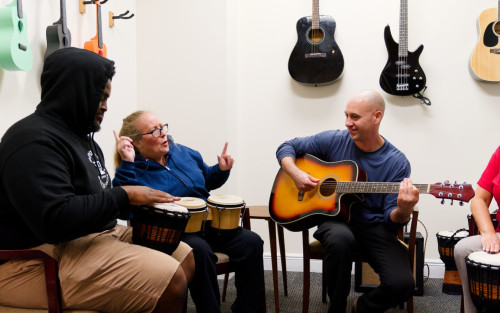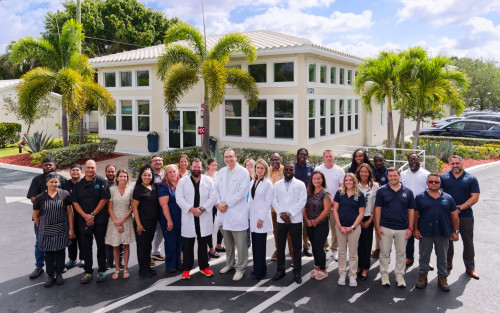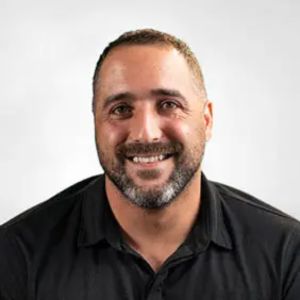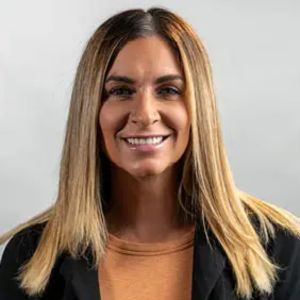








The Haven Detox - Florida Alcohol & Drug Rehab
Treatment Focus
This center treats substance use disorders and co-occurring mental health conditions. Your treatment plan addresses each condition at once with personalized, compassionate care for comprehensive healing.
Primary Level of Care
Offering intensive care with 24/7 monitoring, residential treatment is typically 30 days and can cover multiple levels of care. Length can range from 14 to 90 days typically.
Treatment Focus
This center treats substance use disorders and co-occurring mental health conditions. Your treatment plan addresses each condition at once with personalized, compassionate care for comprehensive healing.
Primary Level of Care
Offering intensive care with 24/7 monitoring, residential treatment is typically 30 days and can cover multiple levels of care. Length can range from 14 to 90 days typically.
Provider's Policy
We accept most types of health insurance. We work with individual policies purchased under the Affordable Care Act (ACA), as well as policies through an employer. We also accept some types of state funded insurance, depending on the policy.
The Haven Detox - Florida Alcohol & Drug Rehab
The Haven Detox - Florida Alcohol & Drug Rehab
About The Haven Detox - Florida Alcohol & Drug Rehab
The Haven Detox in West Palm Beach is dedicated to providing a path for clients to triumph over addiction. The team has created a welcoming space for clients to feel better from day one. They specialize in treating a wide range of addictions, from alcohol and opioids to cocaine and beyond. Recognizing that everyone's journey is uniquely their own, they tailor their care to fit each client’s needs. The Haven starts with a gentle detox program and offers residential care for those who need additional support. Their experienced professionals, some of which have bilingual capabilities, use proven methods to help individuals uncover the root of their addiction and build a strong foundation for lasting recovery.
Find a Safe Space for Healing and Growth
Their team believes in treating the whole person, not just the addiction. This looks like taking a deep dive into the root causes of substance use while nurturing the mind, body, and spirit. The Haven's skilled therapists use a blend of evidence-based practices like cognitive behavioral therapy (CBT) and motivational interviewing, proven to help rewire thought patterns and boost internal motivation for change. Recognizing that healing takes many forms, they also offer holistic therapies like meditation and yoga, giving clients a full toolkit to manage stress and find inner peace. The staff is the heartbeat of The Haven. From the compassionate nurses who guide clients through detox to the experienced counselors who become trusted confidants, every team member is dedicated to creating a supportive, judgment-free zone. At The Haven, clients find a community rooting for their success every step of the way.
Receive Emotional Support and Prioritize Physical Wellness
The Haven Detox in West Palm Beach not only focuses on detoxification but also provides a holistic recovery experience that addresses emotions, thoughts, and behaviors, particularly for individuals navigating the complexities of addiction. A standout feature at The Haven is their Haven for Heroes program, which offers specialized care for veterans, military members, and first responders. This program recognizes the distinct challenges faced by these individuals, including trauma and mental health struggles, and delivers therapies to help them regain control again. Additionally, The Haven incorporates IV therapy into all clients’ treatment plans. IV therapy enhances hydration and nutrient absorption to support clients during detox and recovery.
Find Comfort and Build Connections
The Haven Detox in West Palm Beach offers a relaxing environment with thoughtful touches that prioritizes comfort for all clients. Each bedroom has plush, queen-sized beds, modern furniture, and flat-screen TVs, creating a cozy atmosphere for healing. But what truly sets The Haven apart is the sense of connection and care clients have while in treatment. Staff are deeply committed to crafting recovery plans and walking alongside clients on the path to success.

Highlights from the Center
Highlights
These highlights are provided by and paid for by the center.
Holistic Approach
Medically Assisted Detox
Certified Professionals
Trauma Treatment
Center Overview
Treatment Focus
This center treats substance use disorders and co-occurring mental health conditions. Your treatment plan addresses each condition at once with personalized, compassionate care for comprehensive healing.
Joint Commission Accredited
The Joint Commission accreditation is a voluntary, objective process that evaluates and accredits healthcare organizations (like treatment centers) based on performance standards designed to improve quality and safety for patients. To be accredited means the treatment center has been found to meet the Commission's standards for quality and safety in patient care.

The Haven Detox - Florida Alcohol & Drug Rehab
Insurance Accepted
Cash Pay Rates
Estimated Cash Pay Rate
Center pricing can vary based on program and length of stay. Contact the center for more information. Recovery.com strives for price transparency so you can make an informed decision.




Meet Your Care Team

Vladislava Culina
Medical Director - Medical
MD

Sanon Edmond
Nurse Practitioner - Medical
APRN, MSN, AG-NP

Nicholas Vacarino
Executive Director - Clinical
MSW

Michele Vacarino
Clinical Director - Clinical
MSW
Your Care Options
Specializations
Alcohol
Using alcohol as a coping mechanism, or drinking excessively throughout the week, signals an alcohol use disorder.
Art Therapy
Visual art invites patients to examine the emotions within their work, focusing on the process of creativity and its gentle therapeutic power.
Detox
Detox fully and safely removes toxic substances from the body, allowing the next steps in treatment to begin with a clean slate.
Family Therapy
Family therapy addresses group dynamics within a family system, with a focus on improving communication and interrupting unhealthy relationship patterns.
Holistic
A non-medicinal, wellness-focused approach that aims to align the mind, body, and spirit for deep and lasting healing.
Medication-Assisted Treatment
Combined with behavioral therapy, prescribed medications can enhance treatment by relieving withdrawal symptoms and focus patients on their recovery.
Music Therapy
Singing, performing, and even listening to music can be therapeutic. Music therapy sessions are facilitated by certified counselors.
Trauma
Some traumatic events are so disturbing that they cause long-term mental health problems. Those ongoing issues can also be referred to as "trauma."
Who We Treat
Men and Women
Men and women attend treatment for addiction in a co-ed setting, going to therapy groups together to share experiences, struggles, and successes.
Veterans
Patients who completed active military duty receive specialized treatment focused on trauma, grief, loss, and finding a new work-life balance.
Treatment Services
Detox
Detox fully and safely removes toxic substances from the body, allowing the next steps in treatment to begin with a clean slate.
Residential
In a residential rehab program, patients live onsite, with access to daily treatment and 24-hour care. An average stay is 30-90 days.
Approaches
Evidence-Based
A combination of scientifically rooted therapies and treatments make up evidence-based care, defined by their measured and proven results.
Individual Treatment
Individual care meets the needs of each patient, using personalized treatment to provide them the most relevant care and greatest chance of success.
Therapies
1-on-1 Counseling
Patient and therapist meet 1-on-1 to work through difficult emotions and behavioral challenges in a personal, private setting.
Art Therapy
Visual art invites patients to examine the emotions within their work, focusing on the process of creativity and its gentle therapeutic power.
Eye Movement Therapy (EMDR)
Lateral, guided eye movements help reduce the emotional reactions of retelling and reprocessing trauma, allowing intense feelings to dissipate.
Family Therapy
Family therapy addresses group dynamics within a family system, with a focus on improving communication and interrupting unhealthy relationship patterns.
Massage Therapy
Massage therapy relieves physical and emotional tension, reduces pain, promotes relaxation, and improves emotion regulation.
Medication-Assisted Treatment
Combined with behavioral therapy, prescribed medications can enhance treatment by relieving withdrawal symptoms and focus patients on their recovery.
Motivational Interviewing
Based on the idea that motivation to change comes from within, providers use a conversational framework to discover personalized methods for change.
Psychoeducation
This method combines treatment with education, teaching patients about different paths toward recovery. This empowers them to make more effective decisions.
Conditions We Treat
Schizophrenia
Schizophrenia is a serious mental health condition that causes hallucinations, delusions, and disordered thinking.
Grief and Loss
Grief is a natural reaction to loss, but severe grief can interfere with your ability to function. You can get treatment for this condition.
Personality Disorders
Personality disorders destabilize the way a person thinks, feels, and behaves. If untreated, they can undermine relationships and lead to severe distress.
ADHD, ADD
ADHD is a common mental health condition caused by dopamine imbalance. Common symptoms include inattention, hyperactivitiy, and impulsivity.
Anger
Although anger itself isn't a disorder, it can get out of hand. If this feeling interferes with your relationships and daily functioning, treatment can help.
Anxiety
Anxiety is a common mental health condition that can include excessive worry, panic attacks, physical tension, and increased blood pressure.
Bipolar
This mental health condition is characterized by extreme mood swings between depression, mania, and remission.
Chronic Pain Management
Long-term physical pain can have an affect on mental health. Without support, it can also impact your daily life and even lead to addiction.
Codependency
Codependency is a pattern of emotional dependence and controlling behavior. It's most common among people with addicted loved ones.
Substances We Treat
Alcohol
Using alcohol as a coping mechanism, or drinking excessively throughout the week, signals an alcohol use disorder.
Benzodiazepines
Benzodiazepines are prescribed to treat anxiety and sleep issues. They are highly habit forming, and their abuse can cause mood changes and poor judgement.
Chronic Relapse
Consistent relapse occurs repeatedly, after partial recovery from addiction. This condition requires long-term treatment.
Co-Occurring Disorders
A person with multiple mental health diagnoses, such as addiction and depression, has co-occurring disorders also called dual diagnosis.
Cocaine
Cocaine is a stimulant with euphoric effects. Agitation, muscle ticks, psychosis, and heart issues are common symptoms of cocaine abuse.
Drug Addiction
Drug addiction is the excessive and repetitive use of substances, despite harmful consequences to a person's life, health, and relationships.
Ecstasy
Ecstasy is a stimulant that causes intense euphoria and heightened awareness. Abuse of this drug can trigger depression, insomnia, and memory problems.
Heroin
Heroin is a highly addictive and illegal opioid. It can cause insomnia, collapsed veins, heart issues, and additional mental health issues.
Languages
Aftercare
Care Designed for Your Needs
Personal Amenities
Amenities
Special Considerations
Activities
Off-Site Amenities

Learn More About the Center
IV Therapy for Faster, Better Detox
By delivering fluids, electrolytes, and key nutrients like B vitamins directly into your bloodstream, your body recovers faster and the detox process is safer and more tolerable.
Hypnotherapy for Mental Health & Addiction Treatment
Hypnotherapy—sometimes called clinical hypnosis—guides you into a calm, focused state where your mind is more open to new and healthier ways of thinking.
Florida Addiction and Mental Health Resources
Private treatment centers deliver rapid admission, around-the-clock medical monitoring for safer withdrawal, and integrated behavioral health care to address co-occurring disorders.
The Most Innovative Addiction & Mental Health Treatment Center in Florida
This serene treatment center in Delray Beach, Florida, is designed by the hospitality team with your experience in mind.
What people are saying
Treatment
4.8
Accommodations
4.8
Food & Nutrition
4.7
Value
4.8
Alexa
Reviewed 03/20/25
Review from Rehabs.com
Flora
Reviewed 12/31/21
Review from Rehabs.com
Alfredo
Reviewed 08/20/25
Review from Rehabs.com
Kristen
Reviewed 04/22/25
Review from Rehabs.com
Thomas
Reviewed 04/22/25
Review from Rehabs.com





